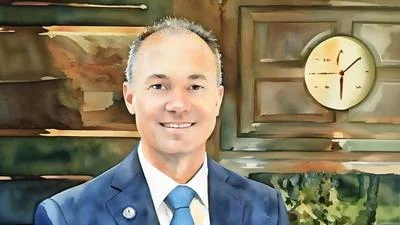Rushan Abbas, founder and executive director of the Campaign for Uyghurs, provides a sobering perspective on the mass internment and abuse of Uyghurs in China, revealing details of cultural erasure, forced labor, and exploitation.
In an interview with Federal Newswire, Abbas recounted her sister’s detention following her advocacy, and the struggles of Uyghur families caught in a state-mandated web of surveillance and control, offer a chilling reminder of the ongoing crisis. Abbas spoke on population discrepancies, cultural history, and the genocidal practices Uyghurs face daily in Xinjiang, also known as East Turkestan.
Discrepancies in Uyghur Population Numbers
According to Abbas, even the official Uyghur population is shrouded in manipulation. Chinese census data claims around 11-12 million Uyghurs, though she suggests the true number is likely much higher. “While they implemented the two-child policy for Uyghurs, those who have more kids are not being registered,” she said. The policy exacerbates an already problematic discrepancy in population tracking, with Abbas citing her husband’s family as an example: “He has seven siblings, but only three of them are registered.”
Systematic underreporting, according to Abbas, is part of a broader strategy to minimize Uyghur cultural visibility and downplay the impact of China’s internment policies. She noted that the lack of global attention to such discrepancies plays into China’s hands, and references the official acts of a Chinese government agent: “Mr. Gao, a Chinese Communist Party propagandist, claimed there were six or seven million Uyghurs living happily in Qingdao … yet he knows the population is listed as 11-12 million. How can he say that?”
East Turkestan’s Historical and Strategic Importance
Abbas provided a rich historical context for understanding Xinjiang’s status within China, and explained that East Turkestan, which means “land of the Turks,” has a legacy stretching back thousands of years. Known for its strategic position along the ancient Silk Road, it served as a commercial and cultural crossroads. “It gave birth to many civilizations,” Abbas said. "We have closer linguistic, cultural, and historical ties to the former Soviet republics in Central Asia and to Turkey.”
But East Turkestan’s wealth in natural resources has proven to be its curse. Holding one-third of China’s natural gas and oil reserves and 40% of its coal, it’s a prized region. “The Chinese Communist Party views it as central to the Belt and Road Initiative,” Abbas said. The region’s resources and location have thus made it a focal point for China’s economic and geopolitical ambitions, with Uyghurs paying the price.
Mass Incarceration, Forced Labor, and Cultural Erasure
With forced internment, mandatory surveillance, and cultural suppression, Abbas described Xinjiang as Orwellian. “The streets are filled with cameras equipped with facial recognition, GPS tracking, and QR codes to monitor Uyghurs’ every move,” she said. The region, once primarily Uyghur, is now subject to a mass resettlement of Han Chinese under government incentives—a policy Abbas argues is deliberately designed to marginalize Uyghurs.
Perhaps most disturbing are accounts of forced marriages and state-run “orphanages” for children separated from their detained parents. Abbas described these “forced marriages” as a form of cultural genocide, explaining that women who refuse marriage to Han Chinese settlers risk incarceration. “Their families, siblings, and parents are sent to camps for ‘Islamic extremism,’” she said. “Over a million children have been taken from their families and sent to state-run orphanages.”
Is This the Holocaust of Our Time?
While cautious in her comparisons to the Holocaust, Abbas acknowledged the chilling similarities. She explained that when addressing Jewish communities, she often uses terms like “atrocity” rather than “genocide.” Yet, “100% of the time, they tell me this is genocide,” she said, describing parallels to the early inaction of Allied countries during WWII.
Abbas voiced her frustration at international indifference. “During the Holocaust, many continued business with Nazi Germany, turning a blind eye … this is the 21st century, with leaked Chinese documents and testimony from former camp victims.”
Despite mounting evidence, many world leaders and corporations remain silent. Hollywood, prominent athletes, and advocates, typically vocal on social justice issues, have shown reluctance. “Where are those voices? Where are the feminists and children’s rights defenders?” Abbas said, highlighting the need for allies across social spheres.
Legislative Progress and Loopholes
In 2021, the U.S. Congress passed the Uyghur Forced Labor Prevention Act to prohibit products made by forced Uyghur labor from entering American markets. However, Abbas cautions that loopholes exist, particularly a provision allowing shipments under $500 to evade scrutiny. “We have companies shipping millions of small packages, flooding the U.S. market with cheap goods made by my people,” she said.
This exploitation, Abbas believes, implicates global consumers in Uyghur suffering. “When we use these goods, we are not just complicit—we are enablers of this genocide. China’s economy profits while my people are enslaved.” She calls for stronger enforcement through the Uyghur Forced Labor Disclosure Act, urging the Senate to pass legislation that closes this and other loopholes.
Abbas’s Call to Action
Abbas uses her personal experience as a testament to what she describes as severe repercussions faced by Uyghurs abroad who speak against China’s actions.
Her sister, a retired doctor with no activist background, was detained in 2018 just days after Abbas’s public advocacy. “My freedom of speech in the United States cost my sister her freedom,” Abbas said, a sacrifice that drives her commitment to amplifying Uyghur voices. “I raise awareness for my people at the cost of my dear sister’s freedom.”
For those moved to support her cause can visit Abbas' organization’s website, campaignforuyghurs.org. Users can sign up for updates, follow social media channels, and learn about ways to take action.
Abbas’s plight serves as a reminder that beneath global politics and trade relating to China often lies human crisis. With the weight of evidence mounting, the international community faces an increasingly stark choice: address the human rights violations in Xinjiang or become complicit in their perpetuation. According to Abbas, “Freedom comes at a price, but so does silence."









